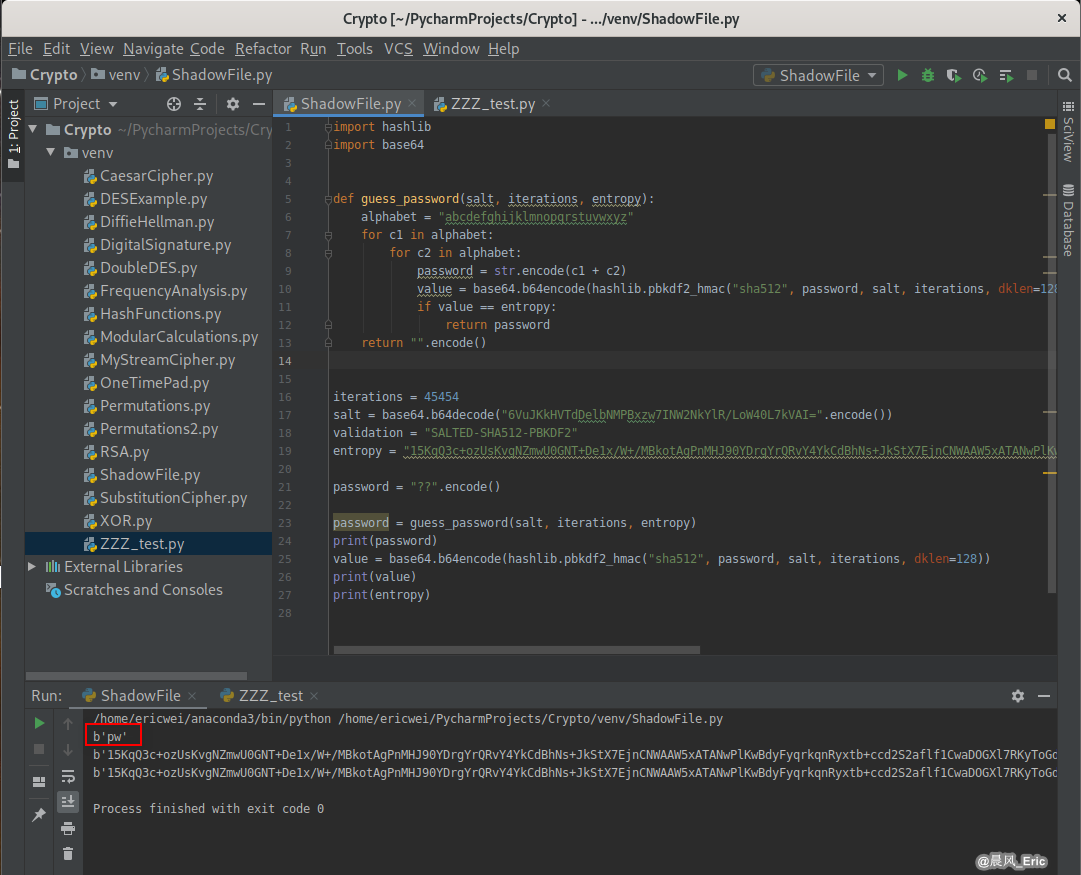Security and Cryptography in Python - Hash Functions(4)
Why iterate over hash function and demonstrated by implementation in Python
Code in Python:
import hashlib
import base64
def guess_password(salt, iterations, entropy):
alphabet = "abcdefghijklmnopqrstuvwxyz"
for c1 in alphabet:
for c2 in alphabet:
password = str.encode(c1 + c2)
value = base64.b64encode(hashlib.pbkdf2_hmac("sha512", password, salt, iterations, dklen=128))
if value == entropy:
return password
return "".encode()
iterations = 45454
salt = base64.b64decode("6VuJKkHVTdDelbNMPBxzw7INW2NkYlR/LoW40L7kVAI=".encode())
validation = "SALTED-SHA512-PBKDF2"
entropy = "15KqQ3c+ozUsKvgNZmwU0GNT+De1x/W+/MBkotAgPnMHJ90YDrgYrQRvY4YkCdBhNs+JkStX7EjnCNWAAW5xATANwPlKwBdyFyqrkqnRyxtb+ccd2S2aflf1CwaDOGXl7RKyToGdNjPNzK0gWSaoFX7eSe6Eugnhw51ioPP/OUg=".encode()
password = "??".encode()
password = guess_password(salt, iterations, entropy)
print(password)
value = base64.b64encode(hashlib.pbkdf2_hmac("sha512", password, salt, iterations, dklen=128))
print(value)
print(entropy)
Running Result (The password is 'pw'):
